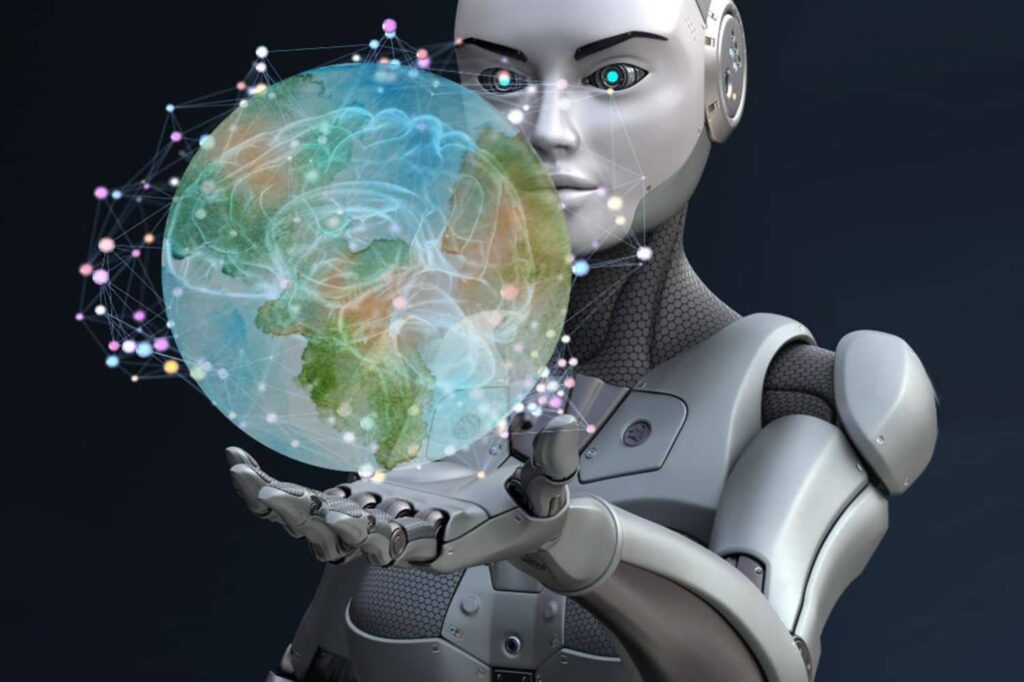01/11/2023
01/11/2023

NEW YORK, Nov 1, (Agencies): The rise of artificial intelligence (AI) has triggered concerns, with Hollywood's menacing Terminators and dire warnings from luminaries like Stephen Hawking and Silicon Valley magnates stoking fears of AI's potential to pose a threat to humanity.
Tech giants are in a race to develop AI that surpasses human intelligence. This has prompted US President Joe Biden to consider emergency regulations, while the European Union is pursuing substantial legislation by year-end. In this context, a two-day summit in London, commencing on Wednesday, will delve into regulatory measures to mitigate AI-related risks.
The remarkable success of ChatGPT, developed by OpenAI, has sparked debates about the impact of "generative AI," which can rapidly produce text, images, and audio based on simple commands in everyday language. One major concern is the potential disruption to human employment. While automated machinery is already performing manual labor in factories, warehouses, and fields, generative AI could also encroach upon white-collar professions, including lawyers, doctors, teachers, journalists, and even computer programmers.
A report from McKinsey predicts that by the end of this decade, up to 30% of the working hours in the United States may be automated, largely accelerated by generative AI. Advocates of this technology have floated the idea of a universal basic income, where machines generate wealth that is shared with individuals freed from traditional work. However, it's also plausible that companies will primarily benefit from increased efficiency, potentially leaving those displaced by automation to fend for themselves.
Artists have expressed concerns about software like Dall-E, Midjourney, and Stable Diffusion, which are capable of generating images in various styles on demand. Computer programmers and writers have likewise criticized AI developers for "training" their software on their creative works, enabling it to replicate their styles or skills without permission or compensation. These AI models have been trained on vast amounts of online data, which raises ethical questions about intellectual property rights.
AI-generated fake news and deepfakes have been around for some time, but the ease with which generative AI can produce them raises the alarm about widespread online deception. Elections are at risk of being swayed by those skilled in disseminating disinformation, warns cognitive scientist and AI expert Gary Marcus. The authenticity and integrity of information are crucial for a functioning democracy, and the proliferation of AI-generated content threatens this foundation.
Generative AI technology also provides scammers with tools to craft convincing phishing emails, even personalizing their approaches based on knowledge gleaned about their targets. They can mimic faces and voices to deceive people, leading to scenarios like false claims about the safety of a loved one. President Biden has described the ability of AI to imitate human voices as "mind-blowing," prompting his recent executive order aimed at addressing this technology.
However, the central concern remains the way humans wield AI. Since AI learns from data provided by humans on the web, it can inadvertently mirror societal prejudices, biases, and injustices. Moreover, AI's capabilities have the potential to facilitate the creation of bioweapons, hacking into financial institutions or power grids, enabling oppressive government surveillance, and much more.
Some industry insiders worry that AI might eventually become so intelligent that it could surpass human control. OpenAI and its competitors emphasize that their ultimate goal is to leverage AI for the betterment of humanity, including addressing long-standing challenges such as climate change. Still, leaders in the AI industry call for prudent regulation to mitigate potential risks, even the extreme one of human extinction.


